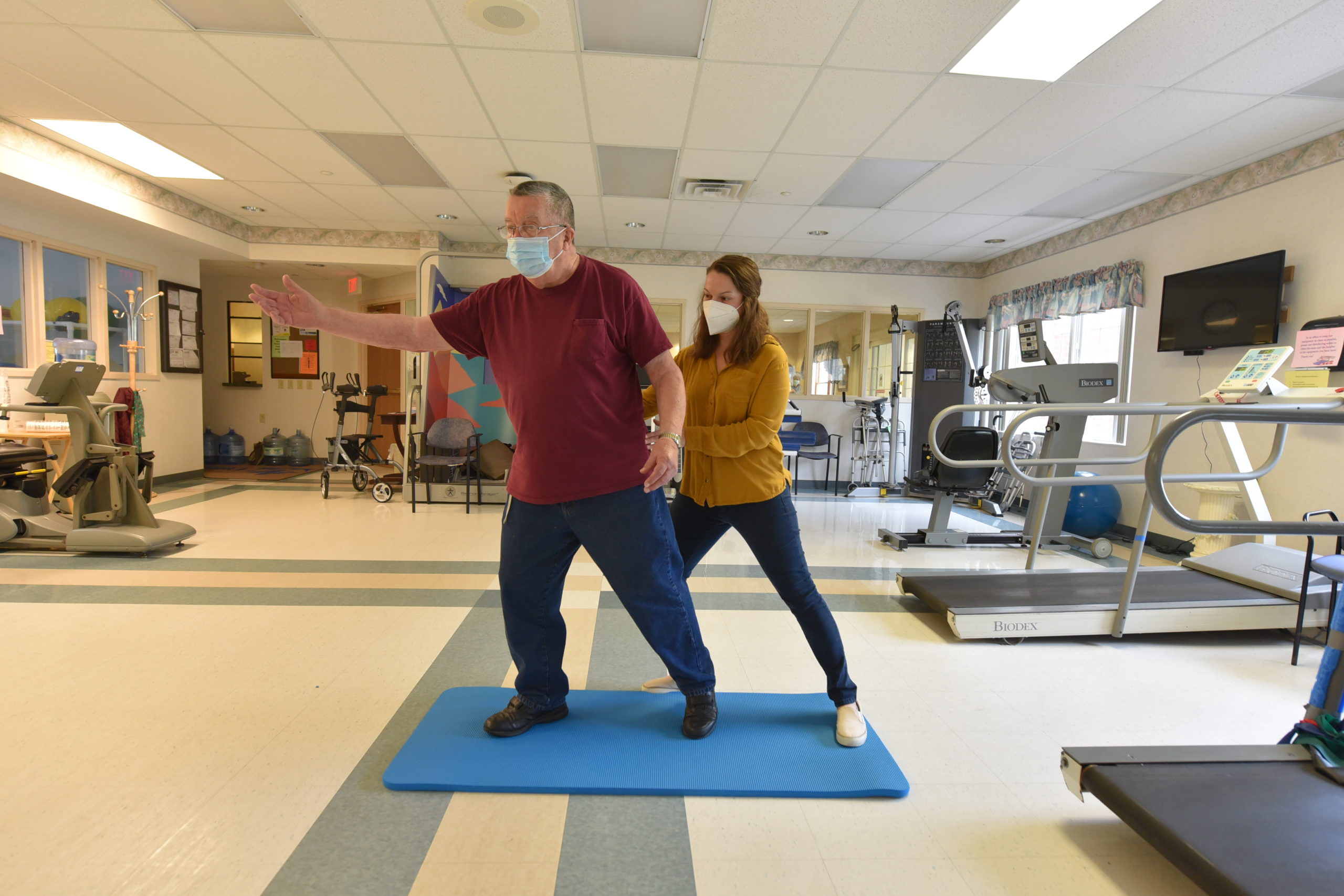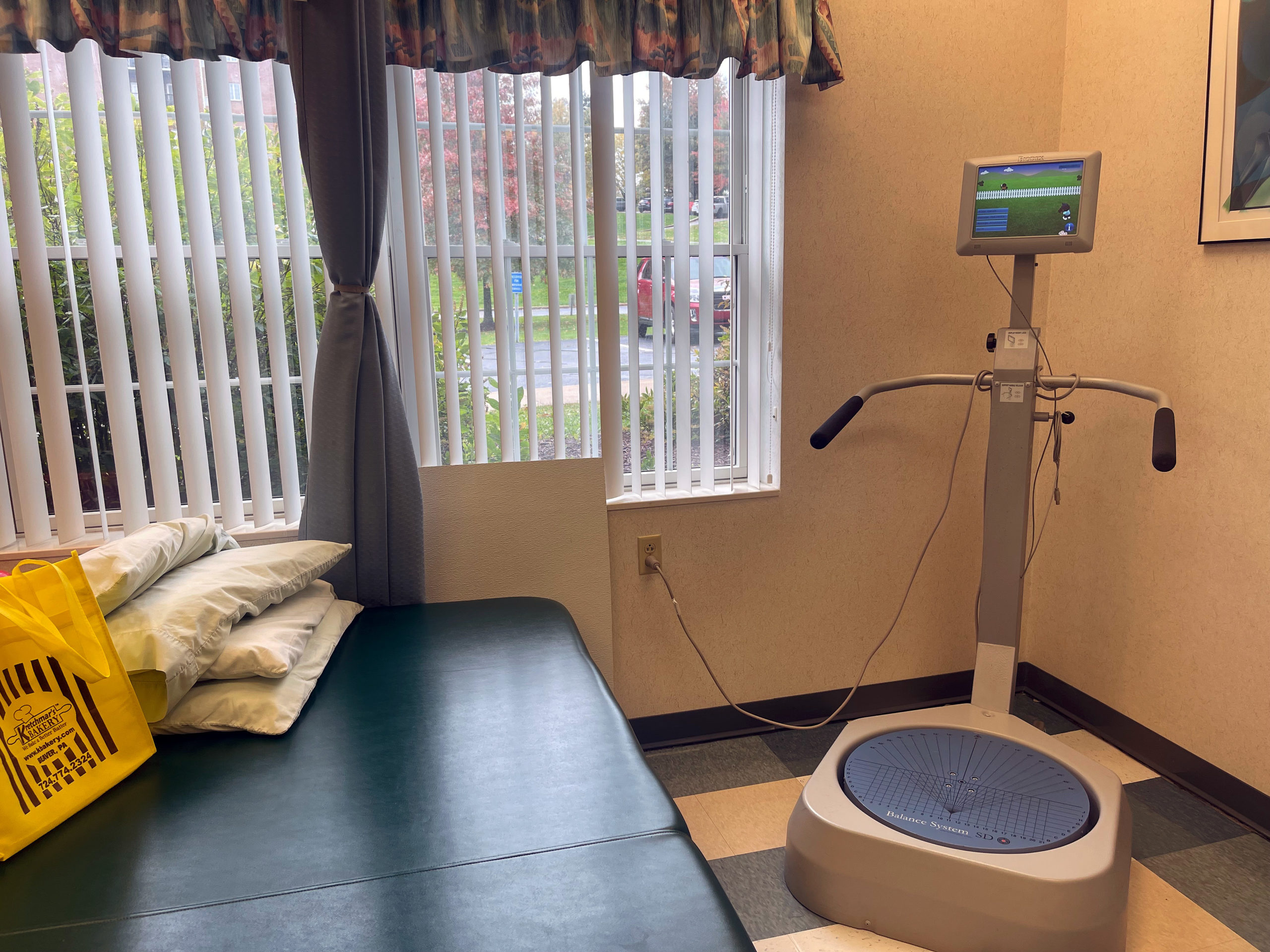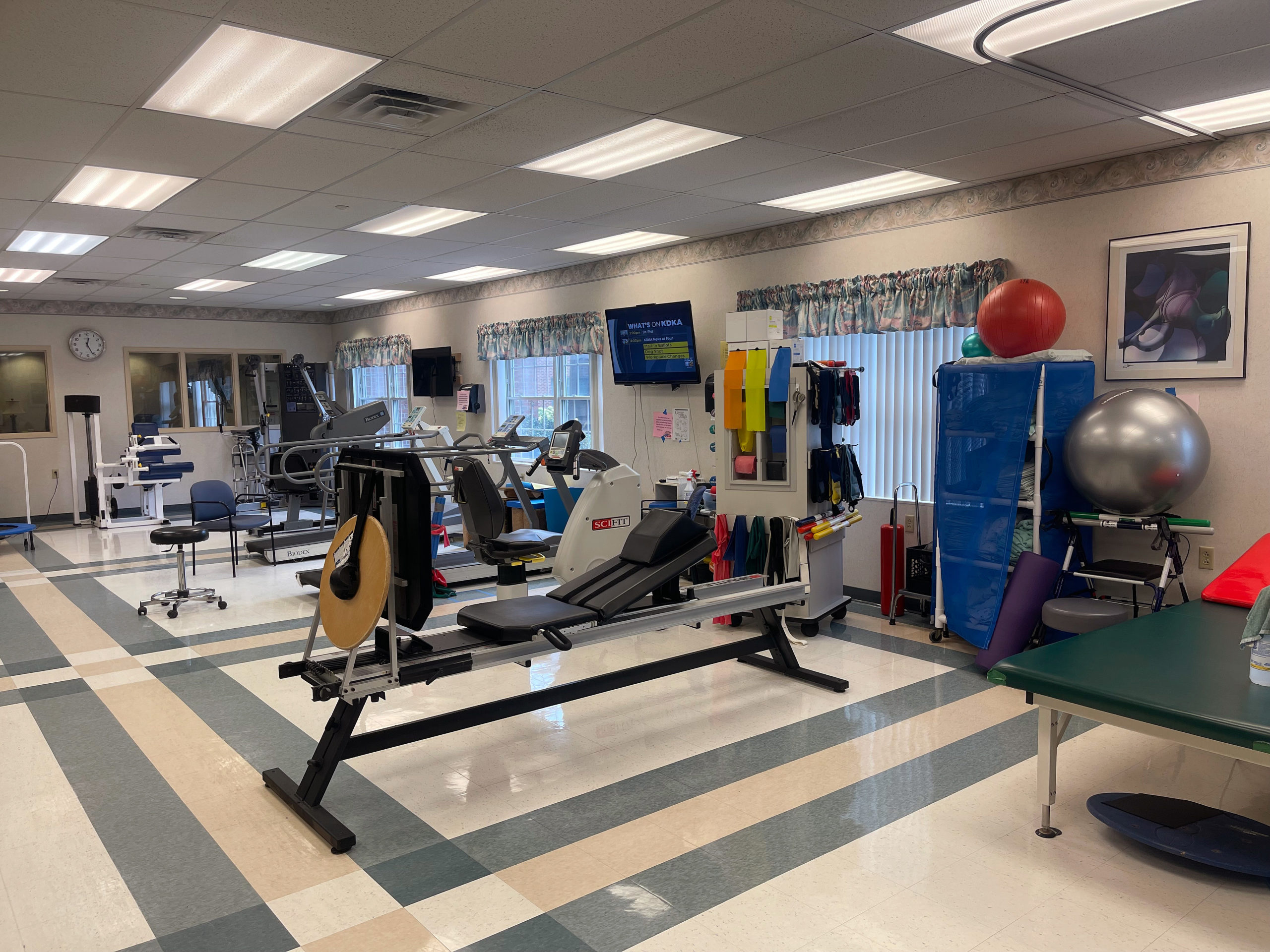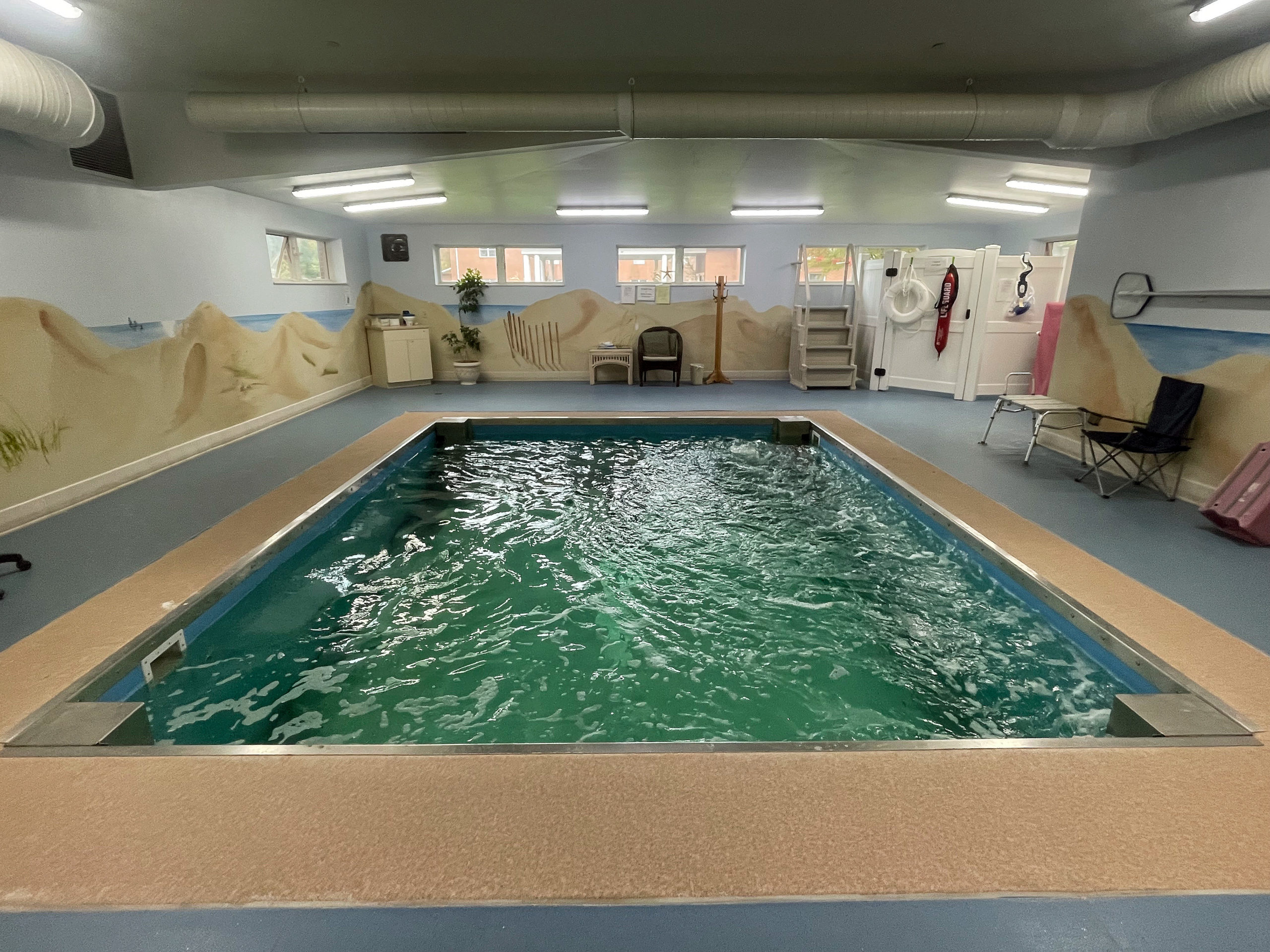Physical Therapy Month: Highlighting movements BIG and small

As Physical Therapy Month continues through October, Outpatient Therapy at Concordia of Cabot has been offering a new, specialized program meant to help patients with Parkinson’s disease and others with mobility issues. It’s kind of a “BIG” deal.
Concordia at Cabot Director of Outpatient Therapy Jennifer Lesnett, DPT, is certified to offer the LSVT BIG program to residents who want to improve their movement. The program uses specific exercises to help patients reprogram their brains into larger join movements, improving their posture and bettering their balance. Originally launched by LSVT GLOBAL in 2003, the program initially focused on people with Parkinson’s disease, a progressive illness affecting the nervous system and in-turn the body’s motor functions.
“There’s a number of people with Parkinson’s disease who live on campus,” Lesnett said. “It’s something that can be very beneficial allowing them to have a better quality of life, but you don’t need to have Parkinson’s to benefit from this program.”
The LSVT BIG program begins with an evaluation. An in-depth history is obtained followed by a mobility evaluation with and without “BIG” cues. Lesnett looks for the tell-tale signs of mobility issues, including shuffling feet, flexed posture, slow movements and a general rigidity and lack of motion in jointed body parts.

”You always say ‘big,’ that’s the external cue,” Lesnett said. “If they respond to that, whether they have Parkinson’s or not, that’s a good indicator we can help to recalibrate their brain into replacing that external cue with an internal one from themselves.”
After the evaluation, the patient is scheduled with 16 sessions spread out across four weeks. Lesnett said that number of sessions is the minimum required to see results, and sometimes it can take longer.
Through the exercises, the patient slowly takes control of the cues until the staff no longer needs to say a word. The sessions include different levels of practice with walking being a big one, but Lesnett said the patients also focus on other functional skills, like buttoning a shirt, picking up an object from the floor and transfers from different surfaces.
“We break those tasks down into small tasks and then combine them back into one,” she said.
While the program can be truly life changing, it’s also a big commitment.
“You can’t just do this program for four weeks and be done. It becomes your new lifestyle,” she said. ”You have to buy into this lifestyle change, but it can give you a better outlook and life.”
Related: How Concordia’s Outpatient Physical Therapy Helps Patients Get Back on Their Feet

Physical and outpatient services
A lot of the principles behind LSVT BIG are commonplace in the field of physical therapy.
“There’s a lot more repetition involved in the LSVT BIG program because that repetition is needed to recalibrate the brain,” Lesnett said. “A lot of the foundation is the same. It’s just a matter of putting it into practice.”
Lesnett said people often think of physical therapy as a post-injury service, but she and others in the field are slowly trying to change that view.
“If there’s some doubt, you should get an evaluation,” she said. “As a profession, we’re trying to promote routine checkups. Physical therapy can be preventative in nature.”
Lesnett and her team have combatted stigma around physical therapy by offering more comfortable exercise regiments which align with the patient’s lifestyle and interests. It’s not uncommon to see residents playing Wii sports in the gym or see others swimming in the hydrotherapy pool. The pool features a mechanical floor that raises and lowers, erasing the need for steps, and it draws a fair amount of attention from residents.
“A lot of folks who come for aquatic therapy say, ‘I like this better than being in the gym because it doesn’t feel like I’m working out. It doesn’t feel like therapy. It’s more fun,’” Lesnett said. “I like to find people’s hobbies, and we start with that. I like to ask them about what they enjoy in life. We’re uniquely giving them a program. We’re not doing the same thing with everyone.”
Related: The Benefits of Aquatic Therapy in Rehabilitation

Beyond the personalized programs, Lesnett said all of their outpatient therapy services feel more personal because of a great staff. She said it’s easier to provide comfort and convenience to patients, when the same three people are there to greet and work with them at nearly every session. Physical Therapy Assistant Marcy Reott and Outpatient Therapy Coordinator Beth Patterson have been with the department for more than 10 years each, and Lesnett has been serving in her role for the past five.
“Folks know us. They’re familiar with us. You have that Concordia family,” Lesnett said. “There’s a trust there. The care is there.”
Concordia offers short-term rehabilitation services at several of our locations. Outpatient therapy services are offered at Concordia at Cabot and at some of our other communities, including our Highpointe Retirement Living and Concordia of the South Hills. For more information about our physical therapy programs near you, send us a message through our online contact form.
Founded in 1881, Concordia Lutheran Ministries is a faith-based, CARF-accredited Aging Services Network and recipient of the inaugural Pennsylvania Department of Aging Excellence in Quality Care Award. As one of the largest nonprofit senior care providers in the country, the organization serves 50,000 people annually through in-home care and inpatient locations.
Get Updates From Concordia
There is always a LOT happening at Concordia! Would you like to stay up-to-date with our news and events? Sign up for our monthly e-newsletter here.